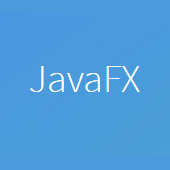| JavaFX 14 Released |
| Written by Kay Ewbank | |||
| Monday, 30 March 2020 | |||
|
The latest version of JavaFX has been released with improvements including support for HTTP/2 in the WebView component. JavaFX is a cross-platform framework that lets developers create a single app for use on desktops, embedded devices, Android and iOS based on JavaSE. First released in 2007 by Sun Microsystems when it owned Java, JavaFX is a collection of graphics and media tools. It is designed to provide a lightweight, hardware-accelerated Java UI platform for developing business applications.
JavaFX lets you reuse Java libraries in your applications, access native system capabilities, and connect to server-based middleware applications. It was made open source as OpenJFX in 2011, and unbundled from the core distribution of JDK by Oracle from version 11 onwards. Since then it has been adopted as a project under the charter of the OpenJDK with a strong community of project developers. This release mainly paves the way for release 15 which promises more new features. This release lists seven enhancements, including the ability to set the size of tabs in Text and TextFlow nodes. You will now be able to switch off the monocle cursor on embedded systems such as the Raspberry Pi. The monocle cursor is used to implement the glass windowing system on embedded systems. The addition of HTTP/2 support for WebView overcomes the limitation that previous versions of JavaFX only make uses of JDK's URLConnection class to serve HTTP requests. The new support adds the ability to use HTTP/2 schemes, with a runtime property to fallback to the legacy HTTP API. Both Sync and Async requests are supported. WebView is an embedded web browser component that can be used to control a browser from within a JavaFX application. Another minor improvement changes TableSkinUtils to not contain actual code implementation; until now the class set up a link between the skin of a class and its skinnable in order to access some methods so preventing any developer working on the TableView or TreeTableView to override or tweak its behavior.
More InformationRelated ArticlesJavaFX Will Be Removed From JDK JavaFX 2.0 In The Limelight At Java One
To be informed about new articles on I Programmer, sign up for our weekly newsletter, subscribe to the RSS feed and follow us on Twitter, Facebook or Linkedin.
{laodposition comment} |
|||
| Last Updated ( Monday, 30 March 2020 ) |

